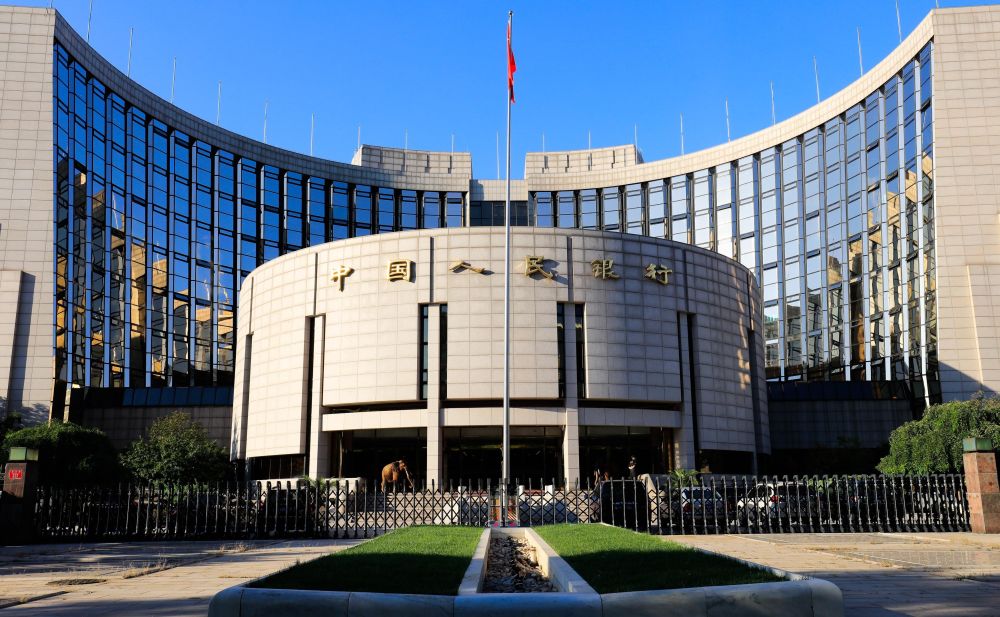
China is half a step from being, to launch digital renminbi into mass circulation
Beijing has long been hatched plans to make the yuan a world currency. Formally, the Chinese monetary unit received this status five years ago, when the IMF board of directors voted for it. 1 October 2016 year decision entered into force, and since then, the yuan has been included in the currency basket, with which the SDR rate is calculated (virtual currency unit "special drawing rights", issued by the IMF). There are five currencies in this basket, and the yuan immediately in specific gravity took third place after the US dollar and the euro, ahead of the British pound and the Japanese yen. However, the yuan still has very modest positions in the global economy and international finance..
According to the results 1 quarter 2020 of the year, the share of the RMB in the total foreign exchange reserves of all IMF member countries was only 2,02% against 61,99% the US dollar and 20,05% in euros. Yes, and other currencies, SDRs in the basket, have higher shares: the Japanese yen - 5,70%, British pound - 4,43%.

RMB share in total operations, passing through the SWIFT system of international payments, in May 2018 year was equal to everything 1,88%. Ahead went US dollar (30,40%), euro (34,19), british pound (7,45), japanese yen (3,54). And two years later, in May 2020 of the year, RMB share even dropped to 1,79%, and he fell from the fifth line to the sixth. Ahead of him were (share in the total volume of payments through the SWIFT system, %): U.S. dollar - 40,88; euro - 32,91; British pound - 6,75; Japanese yen - 3,53; Swiss frank - 1,88.
At the same time, by share in world GDP, RMB purchasing power parity (PPS), China bypassed the United States and took first place in the world back in 2014 year. According to the IMF, at 2019 China's share of global GDP, calculated by PPP, was 19,25 %, US share - 15,11%.
Beijing has been preparing serious monetary reform for several years, which, as conceived by the party-state leadership of the PRC, will solve a number of important socio-economic and monetary problems. It is about the introduction of the official digital currency - the digital renminbi, to be issued by the People's Bank of China (NSC).
Official Digital Currency Theme (Central Bank Digital Currency - Central Bank) worries today the monetary authorities of most countries of the world. Several central banks are already preparing the issue of the Central Bank of Central Bank. Among them are the central banks of Sweden, South Korea, China. As it appears, The US Federal Reserve from a negative attitude to any digital currencies moved to the position of active support for the project to introduce a digital dollar. The monetary authorities of America from the state of "digital hibernation" brought not only China and other countries with their projects to the Central and Central Bank, but also Mark Zuckerberg, Facebook CEO, who last year announced the launch of the Libra cryptocurrency and considers, that it can replace traditional reserve currencies in international settlements.
Farthest in preparation for the introduction of the pulp and paper industry. Domestic digital yuan should suppress attempts to use private cryptocurrencies such as bitcoin, prevent erosion of the NBK monopoly on the issue of money. In fact, digital yuan is needed to service foreign trade and export of Chinese capital (while they rely on the predominant use of the US dollar). With the help of the digital renminbi, Beijing expects to de-dollarize the economy and foreign economic relations.
The task of emancipation of China from the US dollar has become particularly relevant in connection with, that Washington began to impose economic sanctions against Beijing in connection with the events in Hong Kong. So far, sanctions are expressed in blacklisting Chinese officials, but there is no guarantee, that tomorrow Washington will not block the payment and settlement operations of Chinese banks and companies through the SWIFT system.
The factor of time is very important for China in the implementation of the digital renminbi project. Beijing strives to be the world's first to introduce official digital currency, transactions with which will be invisible to US financial intelligence. Beijing counts, that the digital yuan will be in demand not only by Chinese residents, but also by non-residents, which are under economic sanctions (Iran, Venezuela, North Korea, Cuba, Russia and others) or may fall under such sanctions (eg, European banks and companies, who are afraid of secondary sanctions for cooperation with companies and banks of rogue states).
Studies on the introduction of the official digital currency in China began in 2014 year. The emphasis was on the payment system, which should be created on the basis of the new currency. In English literature, this project is often referred to as DCEP (Digital Currency / Electronic Payment). If all dollar transactions are controlled by the Federal Reserve and Washington through SWIFT payment systems, Fedwire, CHIPS, then China has the task of creating a payment system, in which operations with the digital yuan are controlled by the People's Bank of China and Beijing.
Much attention in this project is given to blockchain technologies (distributed registry of operations protocols), which were originally used in private cryptocurrency projects (bitcoin, Ethereum and others.). If in private projects, blockchain technologies serve the horizontal relationships of all participants, guaranteeing them anonymity, then the Chinese Central Bank, this technology should allow to see everything, what happens in the world of digital renminbi and in the vertical, and in horizontal dimensions.
The transition to digital currency will dramatically strengthen the position of the state in the world of money. Banks for conducting transactions with official digital currency will be unnecessary. Digital Currency Accounts Opened at the Central Bank, and transactions between account holders in digital currency will be faster, than before. Yes, and the possibility of theft of money will be excluded. Giant Valuation Infrastructure Will Be Unnecessary, which arose around private banks: rating agencies, audit firms, banking supervision, financial monitoring.
A few years ago, Beijing prepared for a bad scenario in case the SWIFT system was blocked. The system of international payments CIPS was created (China International Payments System), which includes 33 direct and 936 indirect participants and covers 96 nations. However, it did not become a full-fledged alternative to SWIFT.. Very little is known about CIPS; some believe, that CIPS is a pilot project, project related DCEP.
China, many experts say, more ready to introduce official digital currency, than most other countries in the world, even such, as the US, Germany, France, United Kingdom. China has been implementing a technological development program for several years, whose purpose is to 2025 year to make China a superpower in advanced technology. Robotics, Artificial Intelligence, blockchain is part of the direction, where Beijing wants to dominate.
And there is another reason, in which China can get ahead of other countries in the introduction of the CEEC. The Chinese managed to break the habit of cash. Electronic payments for them are commonplace. Not only in cities, but in rural areas, residents almost never use paper money, making payments via mobile phones through Alipay or WeChat Pay payment systems. NBK is not going to pull with the abolition of cash. NBK states directly, that digital yuan is intended to replace yuan cash. Glen Wu (Glenn Woo), APR Ledger Vault Head, He speaks, that the Chinese will not even feel the replacement of cash renminbi with digital: "The average user does not necessarily understand, that something has changed. They will still use WeChat, make online purchases through it, call a taxi, transfer money and use other opportunities… No one will feel the difference, that the payments will already be at the CEC ”.
Secrecy stamp with studies on the digital renminbi has been removed 9 December 2019 city, when the NBK revealed the details of pilot digital currency testing programs. Large-scale testing of the digital renminbi began in April 2020 of the year. It involves four state-owned banks (the main one is the Agricultural Bank of China), as well as a number of large companies, including corporation Huawei and telecommunications giants China Telecom, China Mobile и China Unicom. In total, connected to the project 22 company. At this stage, the task was set to develop mobile applications for storing the digital renminbi and SIM cards with built-in wallets for the new currency.
Testing of the new currency takes place at four sites: in Shenzhen (Guangdong, South china); in the new economic area of Xun'an (Beijing Industrial Center - Tianjin - Hebei, North china); to Chengdu; in suzhou (eastern jiangsu). Little is known about experiment details. It is believed, that a number of trade institutions and service organizations will accept digital yuan from citizens as payment. In xiangcheng, area in the east of Suzhou, the government began to pay half of the subsidies for transport in digital currency to civil servants.
The next testing phase is planned for 2022 year, during the Olympic Games in China (mainly in beijing). Foreign guests will be offered electronic wallets with digital yuan and special SIM-cards of Chinese telecom operators. Candidates for the next round of trials may be Shanghai and major cities of Hainan, where significant volumes of foreign trade and capital are concentrated.
Head of investment company Sino Global Capital Matthew Graham (Matthew Graham) assesses the situation in the world of digital currencies as follows: America has virtually no chance of becoming a pioneer in introducing a national digital currency. It will become China; he is already half a step from, to launch digital renminbi into mass circulation.
Valentin KATASONOV











